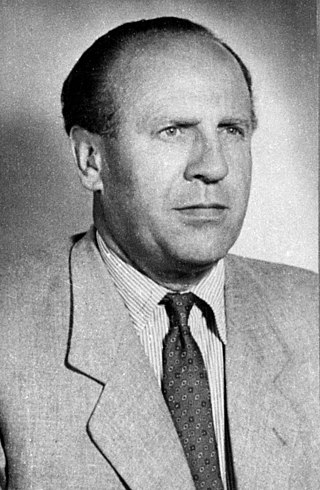
Oskar Schindler was a German industrialist, humanitarian, and member of the Nazi Party who is credited with saving the lives of 1,200 Jews during the Holocaust by employing them in his enamelware and ammunitions factories in occupied Poland and the Protectorate of Bohemia and Moravia. He is the subject of the 1982 novel Schindler's Ark and its 1993 film adaptation, Schindler's List, which reflect his life as an opportunist initially motivated by profit who came to show extraordinary initiative, tenacity, courage, and dedication in saving his Jewish employees' lives.
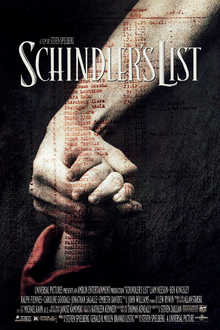
Schindler's List is a 1993 American epic historical drama film directed and produced by Steven Spielberg and written by Steven Zaillian. It is based on the historical novel Schindler's Ark (1982) by Thomas Keneally. The film follows Oskar Schindler, a German industrialist who saved more than a thousand mostly Polish–Jewish refugees from the Holocaust by employing them in his factories during World War II. It stars Liam Neeson as Schindler, Ralph Fiennes as SS officer Amon Göth, and Ben Kingsley as Schindler's Jewish accountant Itzhak Stern.
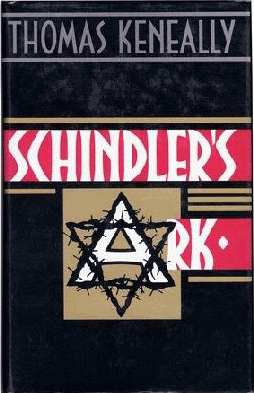
Schindler's Ark is a historical fiction published in 1982 by the Australian novelist Thomas Keneally. It is based on the true story of Oskar Schindler. The United States edition of the book was titled Schindler's List; it was later reissued in Commonwealth countries under that name as well. The novel won the Booker Prize, a literary award conferred each year for the best single work of sustained fiction written in the English language, and was awarded the Los Angeles Times Book Prize for Fiction in 1983.
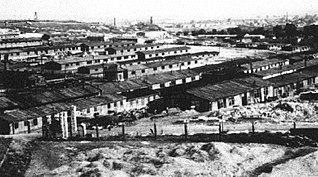
Płaszów or Kraków-Płaszów was a Nazi concentration camp operated by the SS in Płaszów, a southern suburb of Kraków, in the General Governorate of German-occupied Poland. Most of the prisoners were Polish Jews who were targeted for destruction by Nazi Germany during the Holocaust. Many prisoners died because of executions, forced labor, and the poor conditions in the camp. The camp was evacuated in January 1945, before the Red Army's liberation of the area on 20 January.

The Schindlerjuden, literally translated from German as "Schindler Jews", were a group of roughly 1,200 Jews saved by Oskar Schindler during the Holocaust. They survived the years of the Nazi regime primarily through the intervention of Schindler, who afforded them protected status as industrial workers at his enamelware factory in Kraków, capital of the General Government, and after 1944, in an armaments factory in occupied Czechoslovakia. There, they avoided being sent to death camps and survived the genocide. Schindler expended his personal fortune made as an industrialist to save the Schindlerjuden.
Itzhak Stern was a Polish Jew and a Holocaust survivor, who worked for Sudeten-German industrialist Oskar Schindler and assisted him in his rescue activities during the Holocaust. After World War II, Stern moved to Israel.
Natalia Karp was a Polish concert pianist and Holocaust survivor.

James Moll is an American director and producer of film documentaries and television documentaries. His documentary work has earned him an Academy Award, two Emmys, and a Grammy. Moll's production company, Allentown Productions Inc., has been based at Universal Studios since 1994, primarily producing non-fiction film and television projects. Moll also serves on the executive committee of the documentary branch of the Academy of Motion Picture Arts and Sciences, and serves as chair of the documentary award for the Directors Guild of America.
Leopold Rosner was a Polish-born Australian musician. Rosner, who was Jewish, survived the Holocaust in Nazi concentration camps during World War II by playing his accordion for Nazi officials. This earned the attention of Oskar Schindler, who saved his life by having him placed on his famous list. His story became known after Australian author Thomas Keneally's 1982 novel, Schindler's Ark, was adapted into Steven Spielberg's Oscar-winning film, Schindler's List. He appeared in the epilogue of the film at the Schindler's grave on Mount Zion.

Julius Madritsch was a Viennese Austrian businessman who helped to save the lives of Jews during the Holocaust.
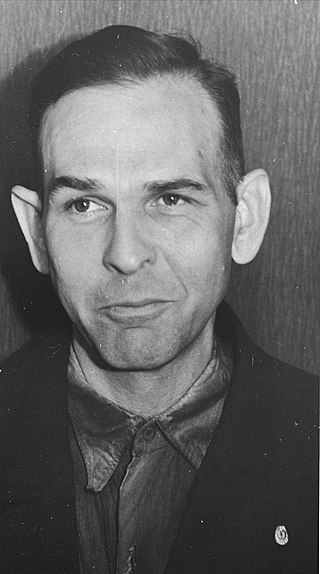
Amon Leopold Göth was an Austrian SS functionary and war criminal. He served as the commandant of the Kraków-Płaszów concentration camp in Płaszów in German-occupied Poland for most of the camp's existence during World War II.
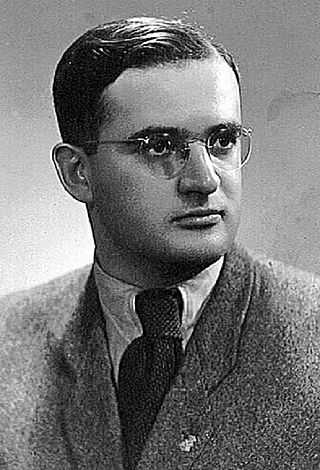
Mieczysław "Mietek" Pemper was a Polish-born German Holocaust survivor. Pemper helped compile and type Oskar Schindler's now-famous list, which saved 1,200 people from being killed in the Holocaust during World War II.
Helen Jonas-Rosenzweig was a Polish Holocaust survivor who was interned during World War II at the Płaszów concentration camp where she was forced to work as a maid for SS camp commandant Amon Göth.
Hitler's Children is an Israeli-German 2011 documentary film directed by Chanoch Zeevi that portrays how relatives of Adolf Hitler's inner circle deal with the burden of that relationship and the identification of their surnames with the Holocaust. They describe the conflicted feelings of guilt and responsibility they carry with them in their daily lives and the disparate reactions of their siblings and other family members.
Leon Leyson was a Polish-American Holocaust survivor and one of the youngest Schindlerjuden, Jews saved by Oskar Schindler. His posthumously published memoir, The Boy on the Wooden Box- How the impossible became the possible, on Schindler's List details his extraordinary survival during the dark times of the dreaded Holocaust.

Oskar Schindler's Enamel Factory is a former metal item factory in Kraków. It now hosts two museums: the Museum of Contemporary Art in Kraków, on the former workshops, and a branch of the Historical Museum of the City of Kraków, situated at ul. Lipowa 4 in the district of Zabłocie, in the administrative building of the former enamel factory known as Oskar Schindler's Deutsche Emailwarenfabrik (DEF), as seen in the film Schindler's List. Operating here before DEF was the first Malopolska factory of enamelware and metal products limited liability company, instituted in March 1937.

My Grandfather Would Have Shot Me: A Black Woman Discovers Her Family's Nazi Past is a memoir by German writer Jennifer Teege. It covers her discovery that her grandfather was Amon Göth, nicknamed the "Butcher of Płaszów" and infamously depicted in Steven Spielberg's 1993 film Schindler's List. Teege was adopted and learned about her family history after reading a biography of her biological mother, Monika Hertwig.
Jennifer Teege is a German writer. Her maternal grandfather was Austrian SS Nazi concentration camp commander and war criminal Amon Göth. Her 2015 book My Grandfather Would Have Shot Me: A Black Woman Discovers Her Family's Nazi Past was a New York Times bestseller.

Diana Reiter, also known as Diana Reiterówna, was a Polish-Jewish architect. A graduate of Lviv Polytechnic, she was one of the first female architects in Kraków. In 1943, she was killed at the Kraków-Płaszów concentration camp during the Holocaust.
Goth, Göth or Góth is a surname of German and Hungarian origin.












